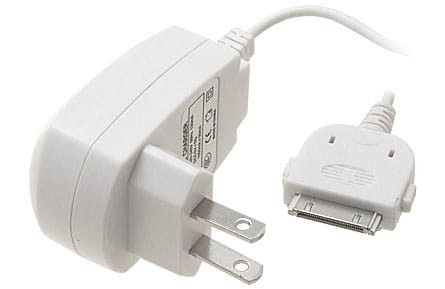Topics
Feds Maintain Status Quo as Salmon Numbers Struggle
Late last Friday, the federal “Action Agencies” (Bonneville Power Administration, Army Corps of Engineers, and Bureau of Reclamation) that run the federal dams on the Snake and Columbia Rivers, submitted their 2011 Annual Progress report to the U.S. district court in Portland, Oregon, that’s overseeing the ongoing litigation over the federal salmon plan (also known as a biological opinion). This annual self-assessment presents the agencies’ view of how well they are implementing a biological opinion (in this case, one that has already been ruled illegal in court). This morning, the main findings were presented to interested parties at NOAA’s offices in Portland….
Read the full article at Save our Wild Salmon
Read MoreAvista, Inland far surpass clean energy goals
Regional electricity providers Avista Utilities and Inland Power and Light recorded impressive accomplishments over the first reporting period for Washington’s clean energy law, Initiative 937.
Read and hear the exciting news about clean energy progress in the Spokane area ….
Read MoreRousing celebration notes success of I-937
The NW Energy Coalition’s July 31 celebration of Washington state’s Clean Energy Initiative truly was a grand success. Former King County Executive Ron Sims gave a touching and eloquent keynote speech highlighting the Coalition’s unique ability to bring diverse voices together and Coalition senior policy associate Danielle Dixon presented the details of progress on I-937, which passed by public vote in 2006…
Read MoreBattery charger standards in contention
A broad coalition of energy efficiency, environmental, and public interest organizations, consumer groups, and energy providers (including the NW Energy Coalition) sent a letter today encouraging the Department of Energy to strengthen the proposed efficiency standards for battery chargers. DOE’s initial proposal sacrifices hundreds of millions of dollars in energy savings and seriously risks increasing national energy use and greenhouse gas emissions compared to simply permitting state standards to continue to exist.
Read the full document here (PDF)
Read MoreBPA Integrated Program Review – Energy efficiency talking points
Download a .doc version here BPA Integrated Program Review Energy efficiency talking points NW Energy Coalition July 13, 2012 The Bonneville Power Administration is setting its budget for the 2014-15 rate period. BPA’s proposed energy efficiency budgets are of particular concern to clean and affordable energy advocates. BPA’s budget-setting process consists of the Integrated Program…
Read MoreNWEC comments on the Northwest Power and Conservation Council’s Draft 2011 Expenditures Report
July 6, 2012 Mark Walker Public Affairs Division Director Northwest Power & Conservation Council 851 SW 6th Avenue, Suite 1100 Portland, Oregon 97204-1348 Dear Mr. Walker: The NW Energy Coalition appreciates the opportunity to comment on the Northwest Power and Conservation Council’s Draft 2011 Expenditures Report: Columbia River Basin Fish and Wildlife Program (“Report”),…
Read MoreThe Olympian: 9th circuit upholds state code for home-energy use
In an apparent defeat for the Building Industry Association of Washington, the 9th Circuit Court of Appeals has upheld a federal court ruling in favor of the State Building Codes Council over standards for increasing the energy efficiency of homes that it adopted in 2009. The NW Energy Coalition, Sierra Club, Natural Resources Defense Council and Washington Environmental Council intervened in defense of the higher energy standards.
Read the full article online at The Olympian.
Read MoreNW Energy Coalition forest biomass resolution and guidance document
The Coalition’s forest biomass resolution and corresponding “Forest Biomass Guidance for Use in Electricity Production” was passed by the full board at the spring meeting on May 19. The guidance principles represent an important step in addressing many of the questions raised regarding the responsible use of the byproducts of forestry activities for energy generation. Below is a formatted PDF copy of the final guidance paper, which we hope you’ll feel free to share with any interested parties.
The document addresses the dearth of available policy guidance on this particular issue and represents an important step forward in engaging a variety of stakeholder viewpoints. While these documents are final for now, Coalition staff plan on keeping a close eye as new policy decisions and studies continue to emerge in this field. We look forward to keeping our members apprised as new information develops.
NW Energy Coalition Resolution on Forest Biomass for Electricity Generation – May 19, 2012
NWEC Forest Biomass Guidance for Use in Electricity Production
Read MoreCoalition congratulates Flathead Electric Cooperative and Snohomish County PUD for energy efficiency awards
The NW Energy Coalition would like to congratulate Flathead Electric Cooperative and Snohomish County PUD for receiving a well-deserved Excellence in Energy Efficiency Award from the Bonneville Power Administration. We applaud and appreciate their regional leadership in energy efficiency and a low carbon future!
Read MoreNW Energy Coalition praises conservation goal in Oregon governor’s draft 10-year energy plan
Gov. John Kitzhaber’s draft plan, released today, calls for meeting 100% of new power needs by getting more out of the power we already produce. That goal exceeds the 85% efficiency target established in 2010 by the region’s official power planning agency, the Northwest Power and Conservation Council.
“While the draft plan goal exceeds the Council’s region-wide target, it’s a practical goal that accurately reflects Oregon utilities’ ongoing achievements,” said NW Energy Coalition senior policy associate Wendy Gerlitz of Portland.
Read More





